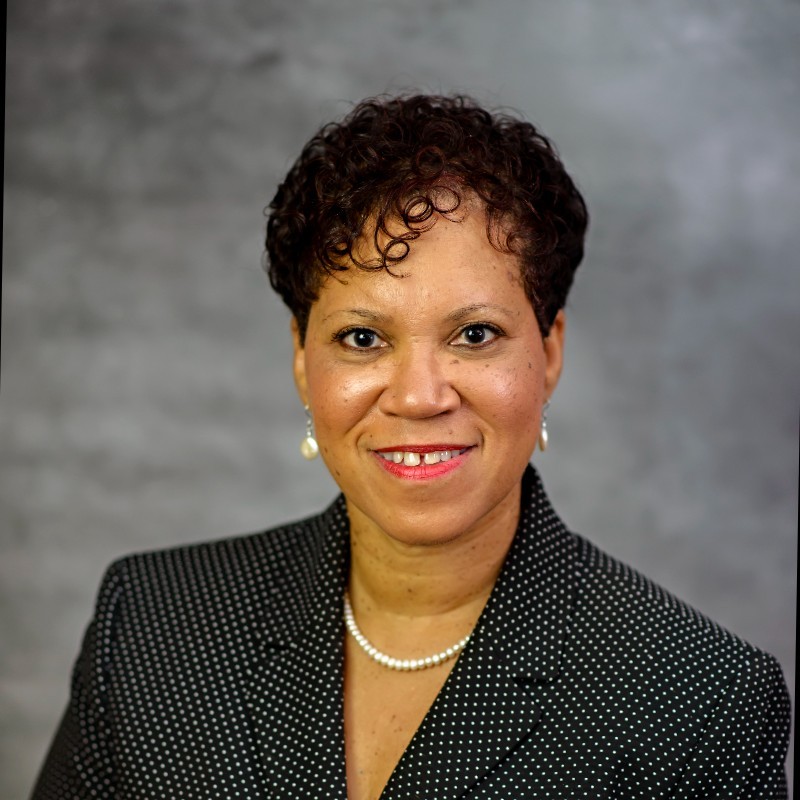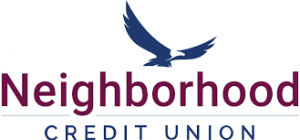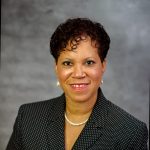

 Carolyn Jordan, Chief Growth Officer at Neighborhood Credit Union.
Carolyn Jordan, Chief Growth Officer at Neighborhood Credit Union.
She leads the growth areas of the credit union, including the online and mobile digital channel, data analytics, special projects, product development, marketing, and advocacy. She graduated Magna Cum Laude from Texas A&M-Commerce with a Bachelor of Science in Business Administration. She also holds a Graduate Marketing Certificate from SMU’s Cox School of Business.
In 2021, she earned her Master of Science in Business Analytics from Texas A&M University-Commerce. With over four decades of industry experience, Carolyn is well respected by her peers on the local, state, and national levels.
She currently serves on the Consumer Depository Institutions Advisory Council for the Dallas Federal Reserve Bank, the Credit Union National Association Political and Grassroots Network and the executive committee of the Texas Regional Chapter of the African American Credit Union Coalition (AACUC). She is a past Chair and current member of the Credit Union National Association (CUNA) Operations and Member Experience Council, a nationwide forum for credit union leaders.
Connect with Carolyn on LinkedIn.
What You’ll Learn In This Episode
- The difference of a credit union from a bank
- The benefits of a credit union versus a bank
- The programs or tools Neighborhood Credit Union offers members
- The importance of financial empowerment
This transcript is machine transcribed by Sonix
TRANSCRIPT
Intro: [00:00:05] Broadcasting live from the Business RadioX Studios in Dallas, Texas. It’s time for Dallas Business Radio. Now, here’s your host.
Lee Kantor: [00:00:18] Lee Kantor here, another episode of Dallas Business Radio. And this is going to be a good one. Today on the show, we have Carolyn Jordan with Neighborhood Credit Union. Welcome, Carolyn.
Carolyn Jordan: [00:00:29] Thank you, Lee. It’s great to be with you today.
Lee Kantor: [00:00:32] I am so excited to learn what you’re up to. Tell us a little bit about neighborhood credit union. How are you serving folks?
Carolyn Jordan: [00:00:38] Well, Neighborhood Credit Union is the oldest credit union in Dallas. We have been helping members be financially successful and serving them and giving them financial or helping them earn financial empowerment for over 90 years. And we’re doing some some great things, giving back to our communities, doing things with our digital app and making that available and just helping helping members and helping Texans in Dallas sites be financially successful.
Lee Kantor: [00:01:09] Now, for folks who aren’t familiar, can you share maybe the difference between a credit union and the bank?
Carolyn Jordan: [00:01:16] Yes, that’s a great question. So a credit union is a financial cooperative and it differs from a bank in that it is owned by its customers, we call them members, whereas a bank is owned by shareholders. Also, the goals and missions are different. At a bank, the primary goal is profit and a return to the shareholders at a credit union. Our mission is to provide members with affordable and convenient financial services. Profits are returned to the members in the form of higher deposit rates, lower loan rates, and improved products and services on the outside. Banks and credit unions may look similar because we do similar things with financial services, but on the inside the philosophy is very different.
Lee Kantor: [00:02:02] Now and for I really want to make sure that folks understand the difference because a lot of folks are frustrated with their bank there. It’s kind of a necessary evil. And they’re not looking into credit unions as a as a place where they can get a lot better service for very similar outcomes that they desire.
Carolyn Jordan: [00:02:23] Yeah, and you know that another thing with, with credit unions, a lot of consumers may feel like that. Well to to get the better service at credit unions because we really do have a hands on personal approach with members that you don’t see with a lot of banks because they’re so big and we’re local in the communities. But a lot of times consumers might feel like that they have to give up some of those great digital features, that great mobile app. And the reality is that you can really do both by the credit union. You can have that hands on personalized service and also have a great mobile app as well. Many credit unions, ourselves included, have mobile apps that are very, very comparable to the Chase’s and the B of A’s of the world. And there’s also a perception that, well, I can’t join a credit union because I don’t work at this company. And so I can’t join a credit union. Well, with credit unions today, a lot of them are community credit unions like we are. They’re open to the community. We’re open throughout Texas to have members join. And so you can find a community credit union. There’s always the traditional employer based credit unions, and there are even credit unions that have partnered with organizations that are maybe that they have their own foundation that provides eligibility for membership. So it’s really easy to join a credit union. You don’t have to just have a credit union at your company and you really don’t have to give up that great. Mobile app or even that great ATM network because credit unions partner with big networks that sometimes rival the size of banks and can be bigger. You don’t have to give up any of that to get that nice hands on personalized service. You can really have it all with credit cards.
Lee Kantor: [00:04:15] And, you know, like they say, membership has its benefits. Can you share maybe some of the benefits of being a member of Neighborhood Credit Union that folks maybe wouldn’t anticipate that value being there?
Carolyn Jordan: [00:04:30] Yes. Yes, happy to do that. Well, with credit unions, you’re typically going to have higher savings and checking rates that’s going to help help you earn more money. We still have totally free checking account. That’s something that you won’t really find at a bank. At a bank to really get a totally free checking account, you usually have to have a monthly deposit minimum or you have to have direct deposit with a credit union. We still have totally free checking accounts that you don’t have to have those requirements. And at neighborhood, we really have a unique account that we call is our rewards checking account as to how your checking account, where you get a high rate of interest just for doing the everyday things that you would normally do using your debit card, having electronic payments come out of your account and going paperless with your statements. So you have the benefits of higher savings rates, lower long rates, and then I’ll wrap it up together with a great mobile capability as well.
Lee Kantor: [00:05:35] Now, isn’t it also true that at Neighborhood Credit Union and credit unions in general that the customer experience is going to be a lot different? Like these kind of organizations, the people know who you are. It’s less kind of a a line on a spreadsheet and more a human to human connection.
Carolyn Jordan: [00:05:59] Absolutely. And that is because we we can be more one on one with our members. So have a credit union. You have the opportunity to always see your branch manager. You can even speak with the executive management, even the CEO. You know, we have that that one on one type of service experience where we really want to get to know our members and we really want to understand what their financial goals are. So we spend that time to really get to know them one on one. And we don’t just look at them as someone on a ledger sheet or a number. We really spend that time to get to know them. And so you can you can speak with your favorite person, personal officer all the way up to the CEO at a credit union, because we spend that time to get to know you one on one.
Lee Kantor: [00:06:56] So what does kind of the future look like for a neighborhood credit union? Are you expanding to different communities? You know, you’ve been doing this for a minute. So what’s what’s next?
Carolyn Jordan: [00:07:11] Well, we have been doing it for a minute. You’re right about that. We actually are getting ready to open up a new branch in Oak Cliff. I’m really excited about it because we’re returning to our roots in Oak Cliff, actually in a spot that we were in in the seventies to the mid 2000. It’s close to the Dallas main post office, as a matter of fact, just down from downtown. And we plan on opening next month and really looking forward to coming home and welcoming the community. As we think about our future, we really feel like that what has really made us successful are our employees and our culture, and so we’re going to continue to focus on that. We have just rolled out a program that we call Whittier, and we feel like that that’s going to take us to that next level when it comes to. Doing the things that we need to do in our community, really honing in on that service and really making that a key differentiator and a cornerstone of what we do is focusing in on service. We’re going to continue to enhance our mobile app. I didn’t mention it. I mentioned our mobile capabilities, but our mobile app in the App Store is rated 4.8, which is equal to, as I said earlier, some of those big things. We’re going to continue to leverage our mobile app, but we’re also going to open branches where it makes sense for us to be. They’ll be smaller branches. They’ll be more based on digital capabilities. We use the interactive teller machines. We call them ATMs. They take care of routine transactions. And that’s really a great tool because when we have those ATMs, we’re able to use our people to really, again, focus in on it by focusing on consultation and focus in on really getting to know our members and getting to know the consumers and our communities to really deeply understand what they’re trying to accomplish and get them to a place where they can be financially successful and financially empowered.
Lee Kantor: [00:09:26] Now, who is the ideal member for Neighborhood Credit Union? Is it an individual, a family? Is it a small business owner who is kind of that, you know, ideal fit member for neighborhood?
Carolyn Jordan: [00:09:43] Well we are retail shop so at neighborhood credit union we really don’t do the small business type of accounts. So that ideal member for for neighborhood is going to be that retail consumer, that family, the single person that’s looking to build that family and build their financial portfolio, if you will. And really, you know, we’re looking at the middle market. We’re looking for those folks that’s really trying to build wealth. Credit unions, neighborhood included are certainly available to everyone, but we really feel like there’s a niche for us in the middle market. And so we’re really trying to help those families and those individuals in the middle market be able to build that financial wealth and to be financially successful. But purely focus for neighborhood on on the retail market, families and consumers.
Lee Kantor: [00:10:41] And then is there help, you say, to helping them with their kind of becoming wealthier? Is there tools and programs you have to help in that way? Are there educational programs? Do you have services that help people grow their wealth?
Carolyn Jordan: [00:10:58] Absolutely. We have a number of what I like to call kind of really unique special services. I mentioned our our special checking account, our rewards, checking to FAFSA. We also have for those folks that’s looking for savings. We have a 17 month online savings CD where members can add additional deposits throughout the term. And that really is a great tool because you can lock up at a high interest rate and then leverage that through the term to add continuous deposits. So that’s really a great way to build savings. We also have investment services through our partner company, North Texas Capital, and that’s something that you don’t always hear about with credit unions. We do have full investment services that where we partner or that the credit union owns that particular company. And so that’s a way to start building your retirement, building your portfolio and building building wealth. And we offer full financial education. We have a program called Great Path here at the Credit Union that’s complimentary to all credit unions. I’ll create new members and even non credit union members that come to our website. It provides financial, education and assistance with budgeting, understanding the credit report and how to improve the score, money management, debt repayment and avoiding bankruptcy, foreclosure and repossession. So that’s something that that really is helpful in building wealth. And for those folks that may have gotten into the payday cycle, we have a special non credit qualifying small dollar loan that we call quick cash and it’s a great alternative to payday loans. If you’ve gotten into that cycle, we can help you get out of that cycle because payday loans can be really expensive and so that’s another way to help folks build wealth. So what we try to do here at neighborhoods is to meet members where there are ad members are in different places in their life. And so we want to have as many financial options that are unique and that help members meet that moment.
Lee Kantor: [00:13:14] Now, before we wrap, can you share a piece of advice for our listeners when it comes to orchestrating a career like you have? You have worked at neighborhood for a long time and you’ve probably seen a lot of things. Can you give some advice to young people, especially on how best to orchestrate their career in a way that not only provides financial stability, but also meaning and impact?
Carolyn Jordan: [00:13:46] Yes, absolutely. Thank you for asking that. The first thing that I would say is to find the company that really aligns with your personal values, to have that that longevity and a career in at neighborhood. I think one reason why I’ve been able to be here so long is that neighborhoods values do align with my own personal values. I’m a lifelong learner, and that’s something that I would recommend to to young folks. Be a lifelong learner, whatever that might mean. That might mean going and completing your various degrees. I just recently finished my master’s degree. It took a little while, but I just finished that. But whatever being a lifelong learner means to you always learn, learn throughout your life. I would also say embrace change. Always strive to grow and push yourself out of your comfort zone because that’s what really, really propels growth and what really helps you to get to the next level and always looking at how to be better the next day, the next week, the next year, always looking to be your best. And you know that you found a purpose and an organization that really resonates. If you can do your best each and every day, and if you can still jump out of the bed and head to the office even after 40 years.
Lee Kantor: [00:15:18] Well, thank you so much for sharing your story today. You’re doing such important work and we appreciate you. If somebody wants to learn more about Neighborhood Credit Union, can you share the website and the best way to get a hold of you or somebody on your team?
Carolyn Jordan: [00:15:32] Yes our website is W WW that my and SIU dot com and certainly feel free to contact me personally see Jordan that see Jordan at my NCUA dot com. We welcome anyone that’s interested in credit union membership and in being financially successful. We love. Helping our community and being available for everyone that needs us.
Lee Kantor: [00:16:04] Well, thank you again, Carolyn, for sharing your story.
Carolyn Jordan: [00:16:07] Thank you so much, Lee. Bye bye now.
Lee Kantor: [00:16:09] All right. All right. This is Lee Kantor. We’ll see y’all next time on Dallas Business Radio.














